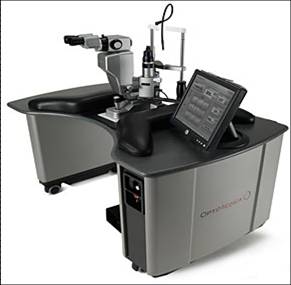The Truth Behind Medication Errors
December 14, 2008 by Rn2b
Filed under General Nurse Information, Nurse Practitioner (NP)
A lot of people die yearly by medicinal drug errors rather than by workplace traumas. A few researchers propose that doctors and nurses comprehend that client safety is one of main duty of nurses. Since RNs have a fundamental function in maintaining the safety of patients, possibilities of mistakes in dispensing drugs can very well be ascribed to nurses instead of scheme failures. Even so, evidence depicts that nursing alertness protects patients versus hazardous practices. For instance, one survey displayed nurses were accountable for stopping almost 90% of medication faults made by doctors, pharmacists and other members of the health team before the error came about. A collaborative method that affects the entire health care team as well as management is a healthy technique for preserving the safety of clients.

Why does medication administration error occur?
Every pace in client care implicates a possibility for mistake and quite some level of danger to the patient. Today’s multifaceted health care delivery system can produce some issues on safe care for clients. A suitable knowledge of the factors that elevated the incidence medication administration mistakes is the initial march towards avoiding them. The frequent factors linked with this error are the following:
* Applying the incorrect name of drug, dosage preparation, or modality;
* Errors on accounting dosage;
* Irregular and critical dosing.
Equal with other safety issues, medication administration faults develop from human sources or system failures. Other factors, such as insufficient training, unjustified time limitation, and low perception of danger can also add to its occurrence.
The top 3 commonly described cases of medication administration mistakes are as follows:
* Error through omission (failing to give a medication prescribed);
* Inappropriate dosage (dose of meds, potency, or amount given differ from what the physician ordered);
* Unauthorized medication errors (drug administered was not authorized in the doctor’s order)
Preparing for the NCLEX-RN Examination
December 14, 2008 by Rn2b
Filed under Nursing Books, Registered Nurse (RN), Testing and Exam Help
Using a book (reviewer) can help make your review easier. To make maximize the time you will spend in studying, try these easy yet essential suggestions:
1. Make use of a weekly calendar to enable you to schedule your study sessions
• Outline the time frames for your daily agendas (work, school, engagements, church activities, etc.) on calendar for the week.
• Find the “loopholes” in your schedule– times in which you wish to study. Put study time to the calendar during times when you expect yourself to be mentally fit, and then do it.
2. Provide the most favorable study environment for yourself.
• Get rid of external sources of disturbance, such as telephone, radio, computer games, internet, etc.
• Do away with internal sources of disruption, such as sleepiness, hunger, thirst, or dwelling on items or problems that cannot be worked on at the moment.
• Have at least 10 minutes break after every hour of strenuous study as a prize and an incentive to keep studying.
3. Use skim reading techniques to enhance comprehension on a specific chapter.
• Skim through the headings of each chapter; it can help you identify the chapter’s substance.
• Do not fail to read the definition of keywords that can help you learn new vocabularies to understand the information in a chapter.
• As much as possible do not disregard graphic aids (figures, graphs, tables, boxes); they are used in explaining significant aspects of a topic.
4. Please read each chapter thoroughly however at a sensible rate.
• Understanding and retention are basically improved by not reading very unhurriedly.
• Take time to read again parts that are not clear to you.
5. Summarize the details that you learned and studied.
• Take practice tests to assessment your application of the chapter content
• Review areas that match to questions you answered inaccurately.
What a Licensed Practical Nurse Does
December 11, 2008 by Rn2b
Filed under General Nurse Information, Licensed Practical and Vocational Nurse (LPN/LVN)
LPN or a licensed practical nurse can also be called LVN or a licensed vocational nurse. You can finish an LPN course in about a year, which means you get to earn immediately because you only study for a short period of time. If you think that Licensed practical nurses are not in demand in the society, there are many countries looking for LPNs to work at nursing homes and hospitals as well. Make sure to study in a school that will give you superb education about nursing so that even if you’ve studied for a short period of time, you are sure you’re getting the proper education needed to face the demands of society.

Licensed practical nurses not only know the basics of nursing but also does more technical work than just washing the patients, helping them walk, eat, and a lot more. They are reliable when it comes to giving injections and massages to the patients. Also, they can check the progression of the patients; vital signs, laboratory tests, and other improvements that they can note down. Their analysis counts.
However, a licensed practical nurse cannot take orders from doctors, only to those nurses who have a higher rank than them. Once a licensed practical nurse is considered an expert, he or she can now supervise nursing assistants.
According to the Bureau of Labor Statistics report last May 2006, those licensed practical nurses who work abroad more or less earn a median annual salary of $31,080 to $46,640. That’s a big money for a short period of education.

